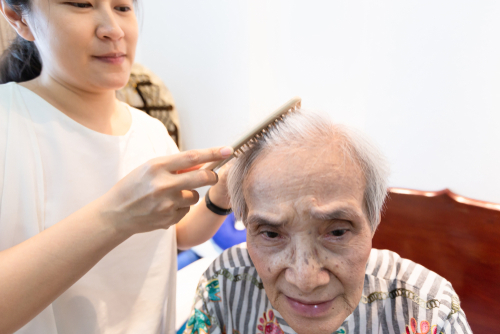
Helping A Senior Loved One Through Mental Health Decline
23 Dec, 2022
Senior Living
Problems with mental health can affect anyone at any time in life. However, elderly adults are more prone to depression and other mental health difficulties. As per WHO, 15% of adults above the age of sixty years suffer from mental health issues. But, this does not mean that mental issues are a normal part of the aging process. If you understand or hear from a senior loved one that their daily life is significantly affected by problems with mental health, they might be in need of treatment.
Friends and family are in an advantageous position to help seniors seek out mental health services that can help improve the quality of their life. Senior care experts in our facility share some common symptoms of mental health problems affecting elderly adults.
Signs Of Mental Health Decline
There can be many causes of mental health decline, from loneliness to physical illnesses to changes in lifestyle. Regardless of the cause, family members and friends should be able to understand the common warning signs of mental health issues like:
- Persistent mood changes
- Restlessness, aggressiveness and uncontrolled anger
- Sleeping too much or too little
- Appetite changes
- Reliance on drugs or alcohol
- Suicidal thoughts
- Chronic pain, frequent headaches or digestive problems
There can be many more potential warning signs, but the important thing is to understand and address important changes in the behavior of your senior loved one indicating that they are in distress. Also, it is important to understand that for older adults, depression can be sometimes misdiagnosed as dementia, because the symptoms can include disorientation and forgetfulness. Seniors may also try to hide the loss of memory and other symptoms. If you are caring for a senior loved one with dementia or Alzheimer’s and notice any signs of depression, you need to discuss the same with the healthcare provider of your loved one about tips to manage the symptoms.
Different types of therapies are available for people of all ages struggling with various mental health problems. These therapy services can be easily adapted to the requirements of elderly adults. Whatever situations or emotions your senior loved one is going through, understand that there are different therapies available that can help improve the quality of life and day-to-day mood of the person. The key is to recognize the symptoms and ensure timely treatment.

Leave a Comment